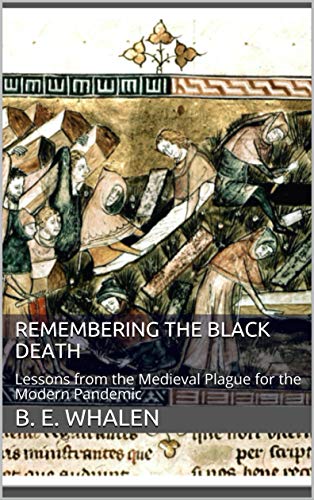 Faculty in the UNC History Department have long produced timely and publicly oriented scholarship, and the tradition remains strong in 2020. Two recent publications aimed at general audiences explain historical links with both the pandemic and the current U.S. political climate. Professor Brett Whalen’s Remembering the Black Death: Lessons from the Medieval Plague for the Modern Plague (available here) takes readers back to the fourteenth century when the Black Death, much like COVID-19, changed the world almost overnight. Meanwhile, Professor Jim Leloudis examines the roots of recent politics in his co-authored work, Fragile Democracy: The Struggle over Race and Voting Rights in North Carolina (available here). Both professors completed their projects with an eye toward public hunger in 2020 for the context that history provides.
Faculty in the UNC History Department have long produced timely and publicly oriented scholarship, and the tradition remains strong in 2020. Two recent publications aimed at general audiences explain historical links with both the pandemic and the current U.S. political climate. Professor Brett Whalen’s Remembering the Black Death: Lessons from the Medieval Plague for the Modern Plague (available here) takes readers back to the fourteenth century when the Black Death, much like COVID-19, changed the world almost overnight. Meanwhile, Professor Jim Leloudis examines the roots of recent politics in his co-authored work, Fragile Democracy: The Struggle over Race and Voting Rights in North Carolina (available here). Both professors completed their projects with an eye toward public hunger in 2020 for the context that history provides.
For Whalen, a specialist in Christian intellectual and cultural history from the eleventh to the thirteenth century, the worldwide shutdowns that happened in March coincided with the week he taught on the Black Death of the 14th century. Inspired by students’ keen interest, Whalen found himself discussing medieval pandemics more and more with family and friends. After speaking on a local FM radio station, the Aaron Keck show, he realized the magnitude of contemporary interest in the topic and set to work on a book that linked this vital past with the present. Relying mostly on old notes and electronically available resources while on lockdown in Durham, Whalen wrote quickly, self-publishing the book and putting it up for sale on Amazon within only a few months.
Leloudis, by contrast, began work on his book several years ago. A historian of the modern South, Leloudis was called as an expert witness in an NAACP case that challenged North Carolina House Bill (HB) 589. That law, which required citizens to produce government-issued photo identification in order to vote, was eventually struck down in 2016 after it was found to oppress minority voters with “near surgical precision.” Working with his long-time collaborator Bob Korstad of Duke’s Sanford School of Public Policy, who was likewise involved in the case, Leloudis saw a need to situate this curtailing of voting rights in historical context. The duo began writing in earnest in 2017, and UNC Press released the book this fall.
Though the two projects address far different time periods significantly, they shared a common goal of making history more understandable for contemporary readers.
Whalen dispels many misconceptions about the supposed backwardness of medieval medicine and plague control. For example, he highlights some of the remarkable achievements made before and during the fourteenth century, including loose forms of quarantine and the use of herbal remedies to keep away pests that likely carried the disease. In addition, he underscores parallels between medieval and contemporary tendencies to cast doubt on established science, authorities, and institutions. Readers gain a greater appreciation for the heroic struggles, past and present, waged against plague and pandemic.
For their part, Leloudis and Korstad show that the evolution of voter rights in North Carolina from the end of the Civil War to the present was by no means linear or progressive. They take readers through several cycles of expansion followed by retrenchment of voting rights. Focusing on the Jim Crow era, the 1960s, and the 2010s, they pay particular attention to organized movements that limited voting rights, providing vital context for the HB 589 story of the 2010s. What united those campaigns was, in their words, “power and plunder”: the economic self-interest of wealthy white lawmakers in repressing minority voting.
To make their findings more publicly accessible across multiple media platforms, Leloudis and Korstad have developed a companion website through AdobeSpark, https://www.fragiledemocracy.com/. The sites’ digital exhibit synthesizes the book’s main arguments and explains many sources related to voter suppression with photos, illustrations, and videos that are freely accessible online.
Whether inspired by sudden and sweeping changes or enduring political issues, faculty in the department continue to produce timely and relevant studies such as those by Whalen and Leloudis. Look for more featured research in our spring edition!
